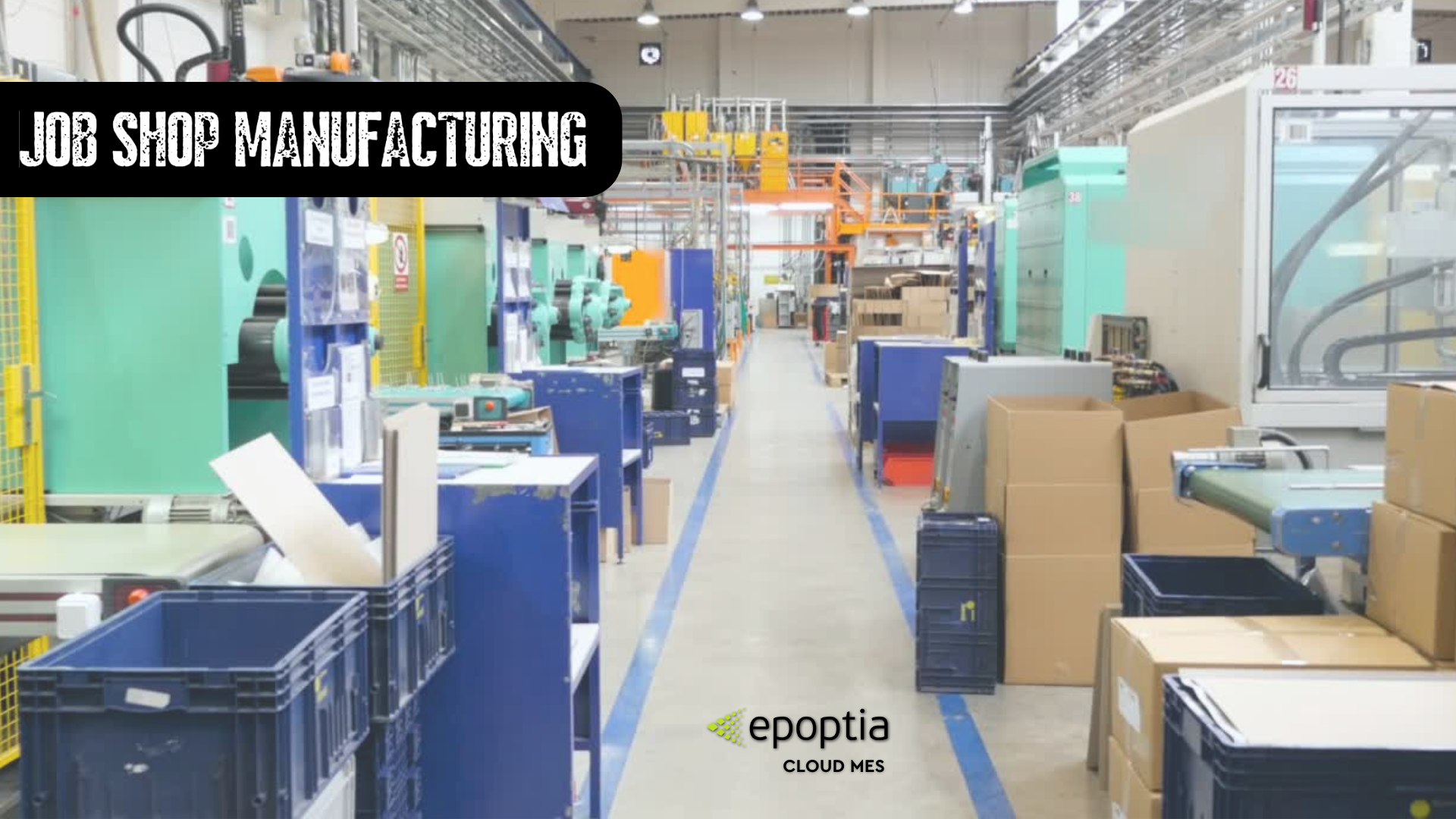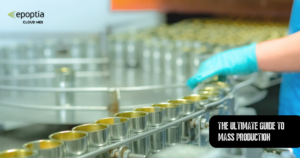Learn about what this type of manufacturing process is and how growing manufacturers can make use of it
A manufacturing process is a method that a business will follow to make its products. It might involve repetitive manufacturing, a continuous stream of production, or batch manufacturing. Across the manufacturing industry, we can find five types of manufacturing processes. These techniques are all different, and they have unique benefits when used properly. Depending on the materials that a business handles and the products it makes, one manufacturing process will be optimal among the five. Repetitive manufacturing, Discrete manufacturing, Job shop manufacturing, Continuous process manufacturing and Batch process manufacturing.
What is job shop manufacturing?
When talking about Job Shops, we should highlight the fact that we find them widely within the manufacturing industry. The reason for that is that they can achieve optimal flexibility as they are able to manufacture a wide variety of products with small lot sizes. Jobs shops make up a process that utilizes tools, machines and facilities that have similarities in function or performance. These type of processes are characterized by workstations, specific workflows, job prioritization and information attached to the job.
Manufacturers use workstations to perform different tasks during a manufacturing process. As mentioned before, a job shop is a manufacturing process that caters for small amounts of make-to-order items. Think about small fabrication orders, custom designed products and repairs, as well as maintenance jobs. And if you are wondering about what kind of companies would benefit from using the job shop manufacturing method, we have a few in mind. They are factories that create customized products in small batches and offer customization. Such businesses may include a paint shop, a printing shop, or a machine tool shop. The job shop process in operation management is firring for such businesses (See more here: https://epoptia.com/manufacturing-industries/).
What are the benefits of job shop manufacturing?
At this point, we can stress that a job shop manufacturing process obviously carries a great deal of advantages for certain type of manufacturing companies.
- Product design customization. Customers can personalize their order and be part of the process in making the items unique.
- Greater flexibility. That is, the machines are not specifically dedicated to producing only one given product and thanks to that a great variety and mix of products can be manufactured.
- More efficient use of resources. By focusing on each product, we can ensure efficient use of resources to fulfil orders using Just-In-Time manufacturing procedures.
- Optimal supervision. In job shop manufacturing, we group machines by departments based on their function. Thus, the supervisors assigned to each department become more effective since they have more valuable and specialized knowledge to ensure productive days.
- Better use of machines. When using the job shop manufacturing process, we use each machine to its full potential. This results in lower investment in machinery since there is less need for machines.
- Highly skilled operators. Since we group machines by departments, each operator can focus their attention on one machine and as a result master this particular department. This increases manufacturing efficiency and activity in each department.
What are the disadvantages of job shop manufacturing?
Nonetheless, there are always disadvantages to take into consideration when deciding whether to opt for a job shop manufacturing process or not.
- High handling cost for materials. If one machine is not ready to take on a job or the machine worker is unavailable at the moment, operators need to transfer materials and this can cause confusion and be costly as well.
- High production lead time. In a batch, operators must complete all parts before the items can move on the next production stage. Think about the case when one part is left behind on production. Then, the whole batch will be set back and that will lead to high production lead time and low production rates.
- High production cost. The production cost in a job shop manufacturing process is high due to the high cost it takes to manage materials and transport parts from one department to another.
- Difficult to organize. Items go through different processes and as a result it can be challenging to organize your production flow. Some orders may be simple, others may bear a large bill of materials (BOM) and that raises the resources cost.
- Distance in material flow. In said manufacturing process, the flow of materials is high because parts are constantly being transported and they require movement throughout the whole shop before operation is complete.
Conclusion
Although adopting a job shop manufacturing process might appear intimidating, there are always ways to mitigate and counteract these risks. Employing a Manufacturing Execution System (MES), for once, can greatly help towards this direction. With a cloud manufacturing software, like Epoptia MES, you can take your business to the next level!
Is Job Shop Manufacturing something your business has adopted? Or are you even thinking about opting for this manufacturing method and are in need of guidance? For more information, check https://bit.ly/3vYnb4f.




















